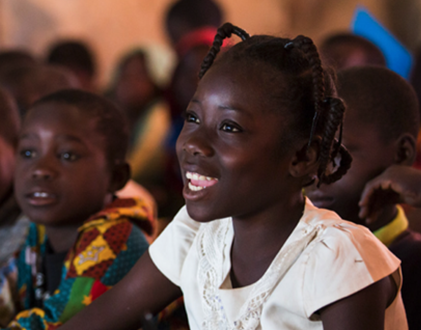التحالف من أجل حماية الطفل في العمل الإنساني
هذه الدورة الإلكترونية التمهيدية مخصصة لأي شخص يعمل حاليًا مع الأطفال ومن أجلهم في الأوضاع الإنسانية، بالإضافة إلى جميع العاملين في مجال حماية الأطفال الذين يرغبون في إعداد أنفسهم لأزمة إنسانية محتملة.
يمكن استخدامه:
كالتعلم الموجه ذاتيًا؛
كشرط مسبق للمشاركين الذين يحضرون فرص التعلم وجهاً لوجه أو عبر الإنترنت أو المختلطة حول حماية الطفل في العمل الإنساني؛
كمورد تعريفي للموظفين الجدد.
يضمن إكمال الدورة أن يكون لدى المشاركين معرفة أساسية مشتركة بالمبادئ والمعايير التي توجه عملنا مع الأطفال والأسر.
هيكل الدورة:
1. مقدمة للمعايير الدنيا لحماية الطفل في العمل الإنساني (CPMS)
توفر هذه الوحدة المطلوبة نظرة عامة وتعريفات أساسية لـ CPHA وCPMS نفسها. وهو يدرس كيفية تناسب نظام حماية الطفل مع العمل الإنساني وحماية الطفل، والغرض منه، والارتباطات بالمعايير والمبادئ التوجيهية الأخرى، وكيفية استخدامها، وما إلى ذلك.
2. المبادئ والمناهج
تتناول هذه الوحدة المطلوبة المبادئ العشرة لحماية حقوق الطفل في المجتمع فيما يتعلق بالعمل مع الأطفال؛ وهي توفر أساسًا لعملنا وكيفية تطبيقنا للمعايير لتحقيق الجودة والمساءلة.
3. المعايير
لا تهدف هذه الوحدات إلى أن تكون شاملة ولكنها تقدم مقدمة لكل معيار وأمثلة لتطبيق هذا المعيار في الممارسة العملية. يرجى الرجوع إلى قائمة القراءات الإضافية الخاصة بـ CPMS وكتالوج دورات التحالف للحصول على تدريب أكثر تفصيلاً حول موضوعات محددة. الوحدات التالية متوفرة:
المعيار 1 – التنسيق (مطلوب)
المعيار 3 – الاتصالات والدعوة
المعيار 4 – إدارة دورة البرنامج (مطلوب)
المعيار 8 – سوء المعاملة الجسدية والعاطفية
المعيار 9 – العنف الجنسي والعنف القائم على نوع الجنس
المعيار 12 – عمالة الأطفال
المعيار 14 – تطبيق النهج الاجتماعي البيئي
المعيار 15 – الأنشطة الجماعية لرفاهية الطفل
المعيار 16 – تعزيز بيئات الأسرة وتقديم الرعاية
المعيار 17 - النهج على مستوى المجتمع
المعيار 20 – العدالة للأطفال
المعياران 21 و22 – الأمن الغذائي وسبل العيش وحماية الطفل
المعيار 23 – التعليم وحماية الطفل
المعيار 24 – الصحة وحماية الطفل
المعيار 28 – إدارة المخيمات وحماية الطفل

